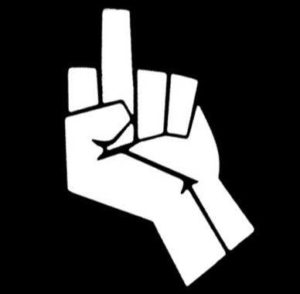The following is a guest post by an anonymous contributor. I found their response articulate, poignant, and personal, stating in different tones a lot of the issues and personal grievances I struggled with myself. I relate a lot to the feeling of having given my all, trying to be “good” to no avail.
Many people have recently posted defenses of Orthodox Judaism in response to the popular Netflix series, “My Unorthodox Life”. My curiosity was satisfied by the trailer alone, but I want to add my voice to the dialogue on this topic regardless of the show’s message or goals.
Note: If you are offended by criticisms of Orthodox Judaism, you will not enjoy the rest of this message.
This is not the first or the second version I have written in preparing this post. I put a lot of thought into what I wanted to share here, and what I wanted to leave out. Why am I posting it to begin with? Primarily because I want there to be one more voice sharing some of the darker sides of Orthodox Judaism.
Let there be criticism. Let there be light thrown onto the pain and suffering that this system brings to many of its most sincere members. Let there be introspection of those still in the system, and their educational messages.
That said, I draw your attention to the fact that this piece is written almost exclusively in the first person. I am not claiming that my experience is the experience of all Orthodox Jews – I know this not to be the case. But this is a window into my experience, and those of many like me. It has value and significance in the dialogue on this topic.
My Orthodox Jewish life defined me. It defined so much of myself and of my life, long before I was even aware of it.
It defined a set of values for me, without asking me what I might value and with what priority.
It defined a moral code for me, without inviting me to probe and examine and make my own moral decisions as an independent human being, unaffected by an overwhelming fear of divine punishment. It didn’t allow me to learn that morality is rarely, if ever, fixed and concrete.
It defined a way of life for me, filled with an unbelievable amount of rules, laws, taboos, norms, and expectations in every facet of the human experience.
It did not leave room for me to choose a way of life that worked for me, without feeling the immense guilt and shame at knowing that despite my most earnest belief, despite my deepest desire to conform and live ‘correctly’, I simply couldn’t keep all of the laws and commandments. Fear of divine retribution was a real part of my daily life, as I believe it is for most Orthodox Jews.
Orthodox Judaism defined the creation and development of the natural world for me, without corresponding remotely to the realities of scientific discovery. This led me to a knotted, compartmentalized approach to reality, history, and the world.
It painted situations and, even worse, people, in colours and labels based on criteria they could not control. It taught me these labels from a very young age, closing my mind to the possibility of life beyond black and white, beyond ‘us’ and ‘them.’
Yes, my Orthodox life also brought me moments of joy and significance, moments of peace and tranquility. But these were sadly outnumbered by the damage and harm that this system caused me for many years.
My story may not be your story. Perhaps you personally find great inspiration and meaning in your Orthodox life. That may be – but it doesn’t take away in the slightest from the experiences of a great number of people within your religion which are very different to yours.
I predict some voices asking whether I wasn’t a little too serious about the religion as a way of life. Couldn’t I just have taken a more relaxed approach? Enjoyed the good parts while striving to improve on my observance and conformity to the religion’s expectations as time went on?
In answer, I will say that a huge amount of my emotional energy was spent in trying to do just that. I believed the holy books I read, and the rabbis’ sermons I heard. I absorbed the unwavering faith of my parents in the religion and its apparent veracity. I knew what I “must” do – the Torah told me so.
So even trying to justify a more moderate approach, while still keeping loyal and faithful to the texts, creeds, and expectations of this incredibly detailed and demanding way of life was an almost-impossible task. I paid a heavy emotional and psychological price over the years for my drive for balance, for moderation, for finding what truly worked for me within this religious system.
I’m proud of my journey out and away from Orthodox Judaism. It’s been a difficult one, but it has brought me peace, resolution, happiness and comfort. In case you were wondering, I have found my own sense of purpose out here. I have taken time to discover and examine my own set of morals, values and priorities, trying hard to evaluate the information and advice I come across with sensible rationality and a healthy amount of humour.
My values and my outlook on life are an ongoing project. They are not carved in stone tablets or written in chapters and paragraphs by an author long dead in a time radically different from mine. They are decided, evaluated, reviewed and lived by me, for me. I hope and believe that they help me navigate this life with a positive morality.
Orthodox Judaism isn’t for me. It never really was. My heart aches for the many millions, over the millennia and still to come, who have felt like I did.
Who have suffered — who will suffer — in silence among the happy believers, needlessly taking ownership of the shame and the blame for the incongruity between this detailed and demanding system and their simple, inner truths.
Who suffer because Orthodox Judaism just doesn’t work for them, for any number of different reasons. Who might not have the circumstances or resources to gain independence of thought, of speech, or of action.
To break free; to rediscover themselves, their worldview, their morality and their fundamental humanity, outside of the gilded bars of their Othodox Jewish lives.













